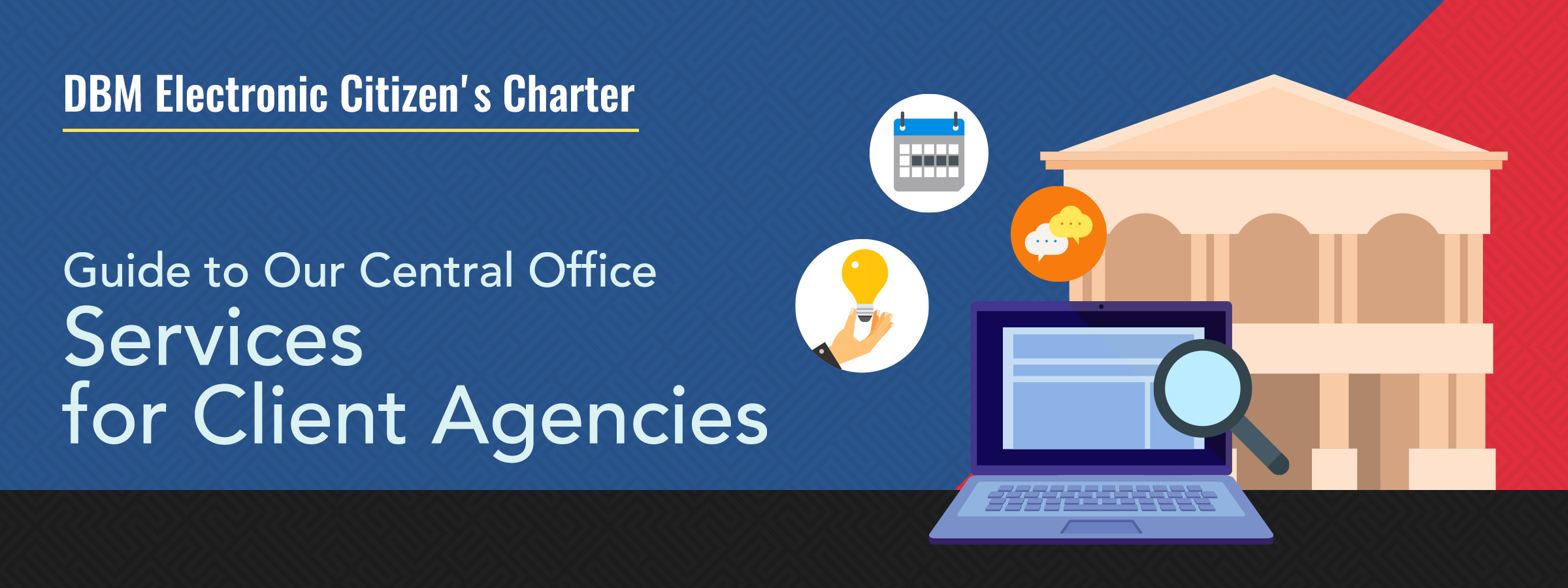The DBM strengthens its network and linkages through the conduct of study visits or learning sessions for local and foreign stakeholders and learners. These study visits or learning sessions are conducted over a minimum period of two (2) hours to a week at most. Subject Matter Experts (SMEs) are identified and invited to serve as Resource Speakers on specific topics, which are tackled in various formats, including lectures, fora, or table discussions. Study visits or learning sessions may also include a trip to and/or tour of offices to observe daily activities and actual transactions.
Official delegations and special interest groups from countries, local agencies, or offices that wish to learn more about the Philippine Budget Process, as well as its relevance, role and responsibilities in the context of good governance and public service may be accommodated in brief lectures and discussions upon the approval of their request or invitation from the Department. A formal request in writing, addressed to the head of the agency, is required for proper reference and documentation.
The request should be submitted and acknowledged by the DBM at least two (2) weeks prior to the date of the intended study visit or learning session for local groups, and at least one (1) month before the target date for foreign groups. This will facilitate sufficient preparation of materials and other necessary logistics by the Advocacy, Communications and Training Service - Capacity Development Division (ACTS-CDD).
Office or Division
| OFFICE OR DIVISION: |
|
| CLASSIFICATION: | Highly Technical |
| TYPE OF TRANSACTION: |
|
| WHO MAY AVAIL: |
Visiting party/ies, which may be one of the following:
|
Checklist of Requirements
|
CHECKLIST OF REQUIREMENTS |
TYPE AND NUMBER OF COPY |
WHERE TO SECURE |
|
One (1) original or e-copy/photocopy of the required document |
1.-2. Requesting party 3. ACTS-CDD |
Client Steps
Administrative Service-Central Records Division (AS-CRD) and ACTS
|
CLIENT STEPS |
AGENCY ACTION |
FEES TO BE PAID |
PROCESSING TIME | PERSON RESPONSIBLE |
|
1. Submit request to AS-CRD or send the request via email to the ACTS-CDD official email ( |
Receive the request or invitation. |
None |
3 working days from the receipt of request |
Administrative Assistant (ADAS) and Administrative Officer (AO) ACTS |
| 1.1 None | 1.1. Prepare initial response to the requesting party. | None | ||
| 1.2 Accept and/or acknowledge receipt of initial response from CDD | 1.2 Send initial response to requesting party | None |
Advocacy, Communications and Training Service - Capacity Development Division (ACTS-CDD)
|
CLIENT STEPS |
AGENCY ACTION |
FEES TO BE PAID |
PROCESSING TIME | PERSON RESPONSIBLE |
| 2. Attend exploratory/ coordination meeting. |
2. Evaluate the request for the study:
|
None | 7 working days from the sending of initial response |
Training Specialist, Senior Budget and Management Specialist |
| 3. None | 3. Review and approve confirmation or regret letter. | None |
Director ACTS Supervising Senior Official of the BITS BPS Group DBM Secretary OSEC |
|
| 4. Accept and/or acknowledge receipt of confirmation or regrets letter. | 4. Send feedback (confirmation or regrets letter) to the requesting party based on the result of the evaluation of request. | None |
Training Specialist |
|
| TOTAL | None | 10 working days | ||
|
*Feedback sent through a formal letter or an email to the requesting party. Moreover, the signatory of the feedback letter can either be the ACTS Director, the Functional Group Head, or the Department Secretary, depending on the type of the requested study visit or learning session and/or the requesting party. **In cases where the request for a study visit was declined, the requesting party can send another request where both parties (DBM ACTS-CDD and the requesting party) are amenable to the new details of the request. |
||||






